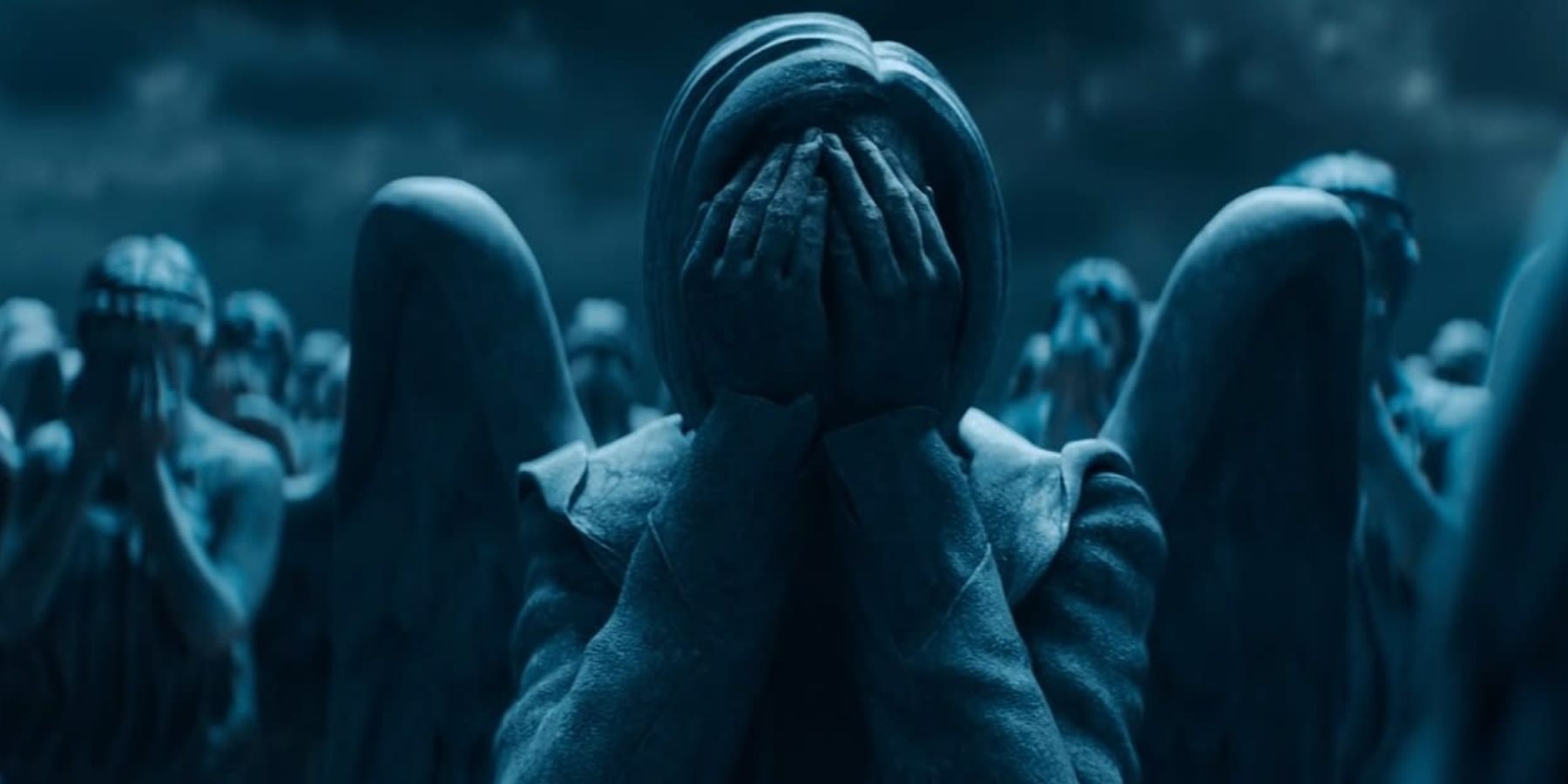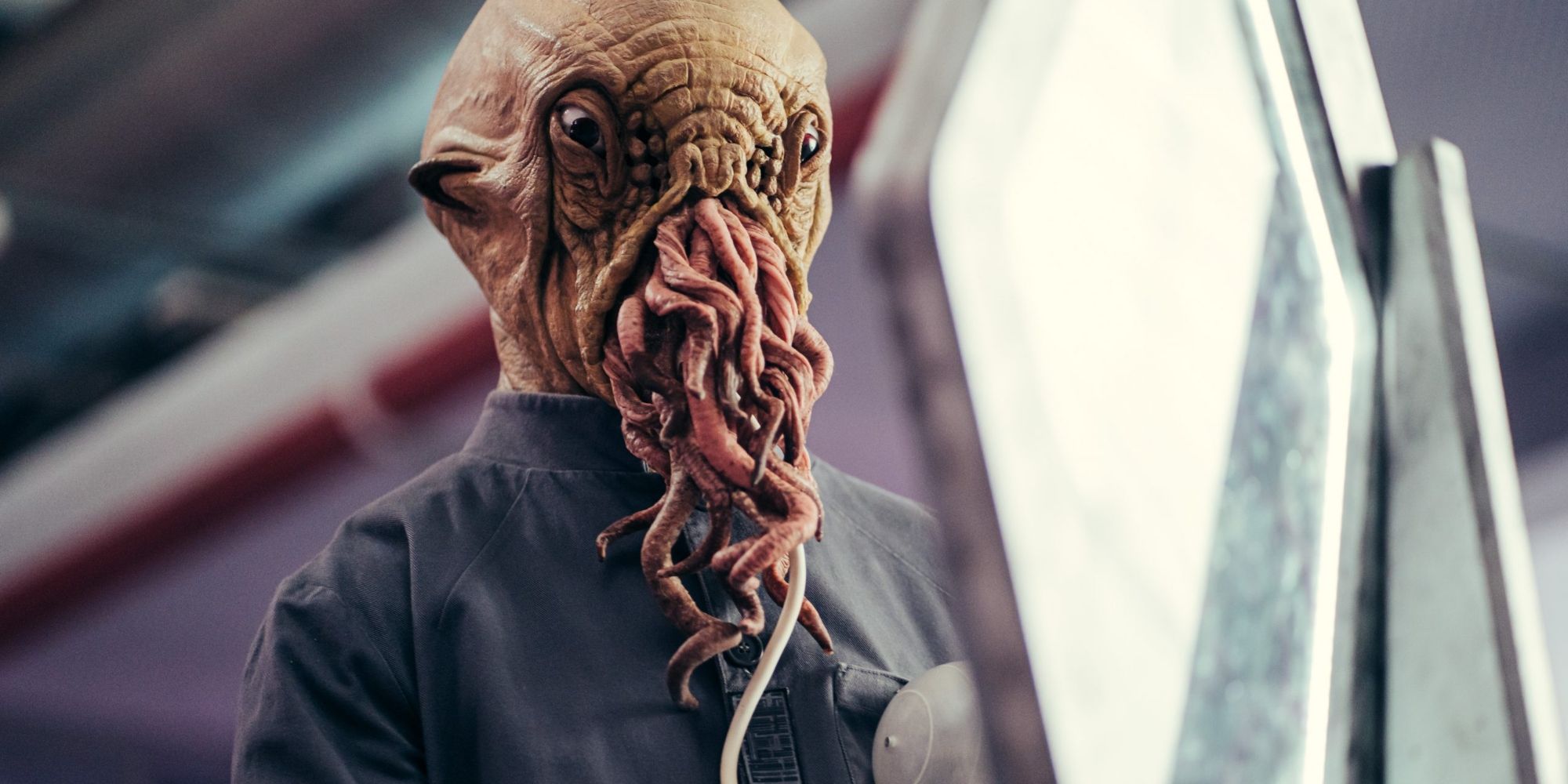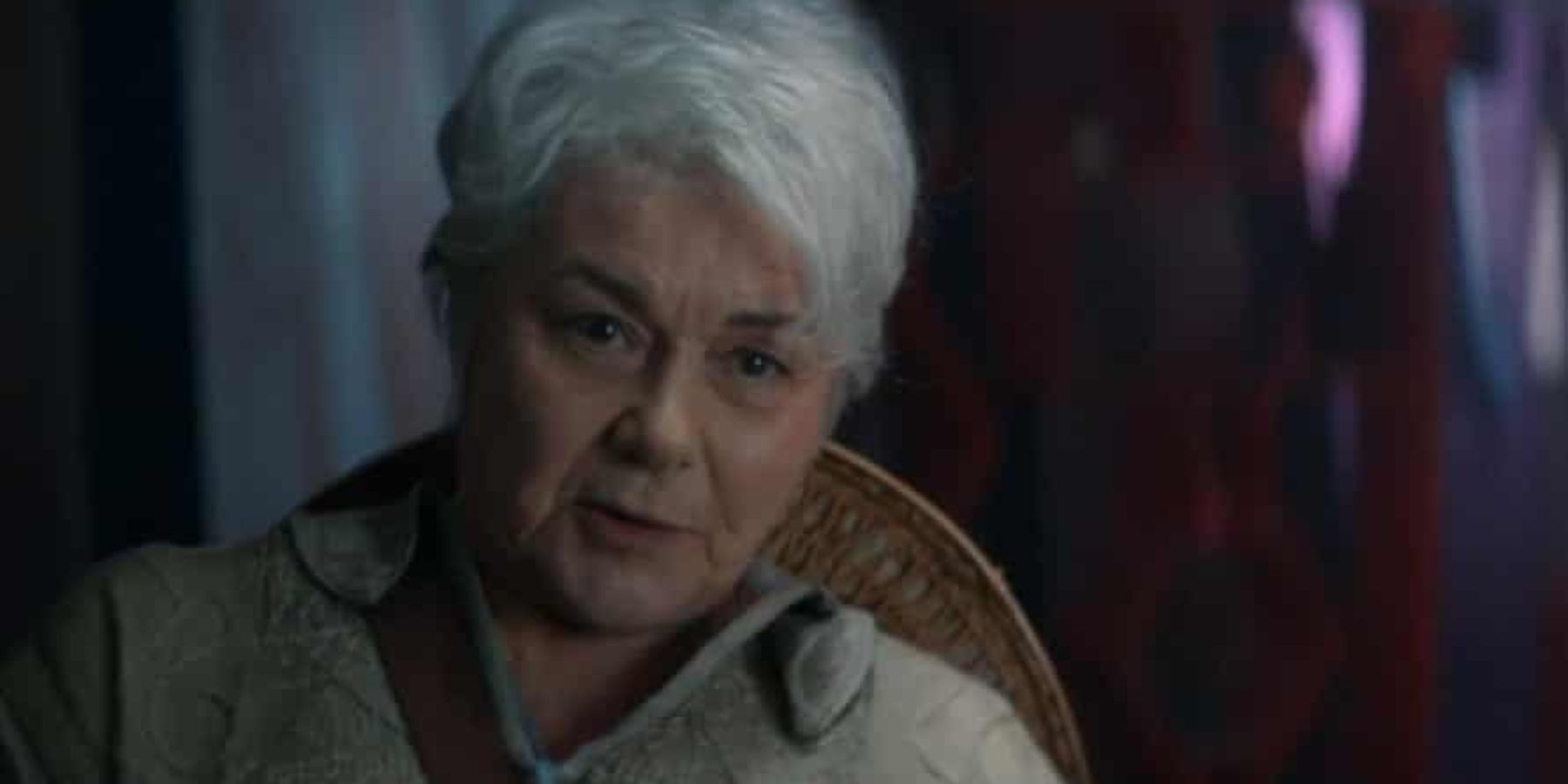This review contains spoilers for Doctor Who Series 13, Episode 5.The previous two episodes of Doctor Who proved to be major disappointments, bogging down what seemed to be a promising season — “Once, Upon Time” was a needlessly convoluted mess, while “Village of the Angels” was a dull retread of previous Weeping Angel episodes. And while this week’s installment isn’t quite as frustrating as the last two episodes, that still doesn’t make it much of an improvement.
Part 5 of the Flux miniseries, “Survivors of the Flux”, written as usual by showrunner Chris Chibnall, picks up immediately after the dramatic (albeit confusing) cliffhanger of the previous episode, in which the Doctor (Jodie Whittaker) is transformed into a Weeping Angel before being transported to the mysterious Division. Any tension created by this twist is immediately removed when the Doctor is returned to normal right away, revealing that the Weeping Angels only placed her in temporary stasis. That’s right, Episode 4’s cliffhanger is rendered completely inconsequential in under a minute, leaving it as nothing more than a cheap gimmick that adds even more superfluous powers to the Weeping Angels’ ever-growing list.
A House Divided
Sadly, things don’t get much better when the Doctor arrives at the Division’s headquarters, where she meets the leader of the shadowy Time Lord organization — Barbara Flynn’s enigmatic character from “Once, Upon Time”. The mastermind, previously credited as “Awsok”, now reveals herself to be none other than Tecteun, the Gallifreyan explorer who first adopted the Doctor and brought them to Gallifrey. This confirms that the Master’s account of the Doctor’s controversial new origin back in Series 12 is indeed true, and that the Doctor is still the immortal Timeless Child, source of the Time Lords’ power.
Tecteun also reveals the long-awaited truth behind both the Division and the Flux — the Division is a Time Lord organization created to interfere with the timeline, orchestrating events so that history will proceed as the Time Lords see fit. Once the Master revealed the Division’s existence to the Doctor, Tecteun knew that she would stop at nothing until she found the Division and uncovered their secrets. So, the Division created the Flux to destroy the universe (and the Doctor along with it) while providing enough power to let the Division travel to another universe and start their manipulations all over again.
Now, let it be said that the premise of this story isn’t bad in concept. In fact, it has potential: the Time Lords’ short-sighted, hypocrytical hunger for power has caused no shortage of problems in the past, and the added layer of the Doctor confronting her own adoptive mother could easily add plenty of drama. Indeed, the problem here is not in the concept, but in the execution. The entire Division plotline suffers from a major case of “show, don’t tell” — Tecteun claims that the Division is a massive, all-powerful organization that controls all of time and space from the shadows, but she’s the only current member ever shown on-screen. Likewise, no examples of the Division’s meddling with time or its adverse effects are ever mentioned. It is simply stated that the Division has been manipulating history, with no elaboration on this idea, and this is meant to be enough to take the Division seriously.
The Trouble With Tecteun
As for Tecteun herself, she lacks the gravitas needed to effectively serve as the ultimate mastermind behind the Flux. Judging by her role in the story, she should by all accounts be one of the greatest enemies the Doctor has ever faced — she’s the very first Time Lord who controls an unfathomably powerful organization, and even raised the Doctor as her own child. But as intimidating as she sounds on paper, Chibnall’s script leaves Tecteun as nothing more than another generic bad guy.
Tecteun’s dialogue reads like a greatest hits album of past Doctor Who big bads. She offers to let the Doctor rule by her side like the Master, and she boasts condescendingly about the Time Lords’ superiority like Rassilon. However, most of her interactions with the Doctor feel like a retread of the Daleks’ creator, Davros — Tecteun criticizes the Doctor’s compassion as a weakness, then claims that she uses her companions as little more than a means to an end. Even her supposed role as the true mastermind behind all of the Doctor’s suffering feels like a hollow echo of villains past.
That said, Tecteun did manage to have a single memorable moment. When the Doctor asks why the Division fears her so much, Tecteun replies “You inspire. Make people question and rise up. You give them hope. That can be problematic.” It’s a line that perfectly sums up the driving themes of the series — the Doctor as a beacon of hope and freedom, fighting back against the forces of fear and tyranny. But alas, even that quote fails to resonate as much as it could. After all, with Chibnall at the helm, the Doctor hasn’t felt all that inspiring for some time now, despite Jodie Whittaker’s best efforts.
A Series In Flux
Of course, Whittaker at least gets some decent screen time to work with, even if most of it is spent on exposition. Her poor co-stars don’t even get that much, with Yaz and Dan being relegated to a minor subplot where they go on an Indiana Jones-esque adventure in the early 20th century. At first, this subplot feels like the perfect opportunity to let Yaz finally have her time in the spotlight, stepping up as a leader to help save the Doctor. However, the companions have very little to do at all besides meandering busywork that takes up precious screen time while accomplishing not much of anything. This entire season has been a serious waste of the Doctor’s companions — one of the most important facets of the entire series.
The other major subplot of the episode focuses on the Grand Serpent (Craig Parkinson), who originally appeared in Vinder’s flashbacks in “Once, Upon Time” as the corrupt politician who got Vinder reassigned to a remote outpost. Now, he appears without explanation tampering with UNIT throughout history, assassinating major officials by psychically conjuring an alien snake to kill them from the inside. Yes, you read that correctly. The important bit, however, is that the Grand Serpent is working for the Sontarans, setting up their return in the next episode.
The episode also features some surprise appearances from fan-favorite characters like Kate Stewart (Jemma Redgrave) and the Ood — plus name-drops of Osgood and Brigadier Lethbridge-Stewart — but cameos don’t make an episode good. Much of the episode is taken up by barely-relevant subplots, while the rest is devoted exposition from a generic villain who gets killed off unceremoniously by even more generic villains in the form of the Ravagers. “Survivors of the Flux” at least provides some long-overdue answers to the season’s mysteries but said answers aren’t all that satisfying. The next episode will conclude the Flux arc in what promises to be an epic final battle, but as poorly-paced and clumsily written as the rest of the season has been, it’s hard to get excited for it.




